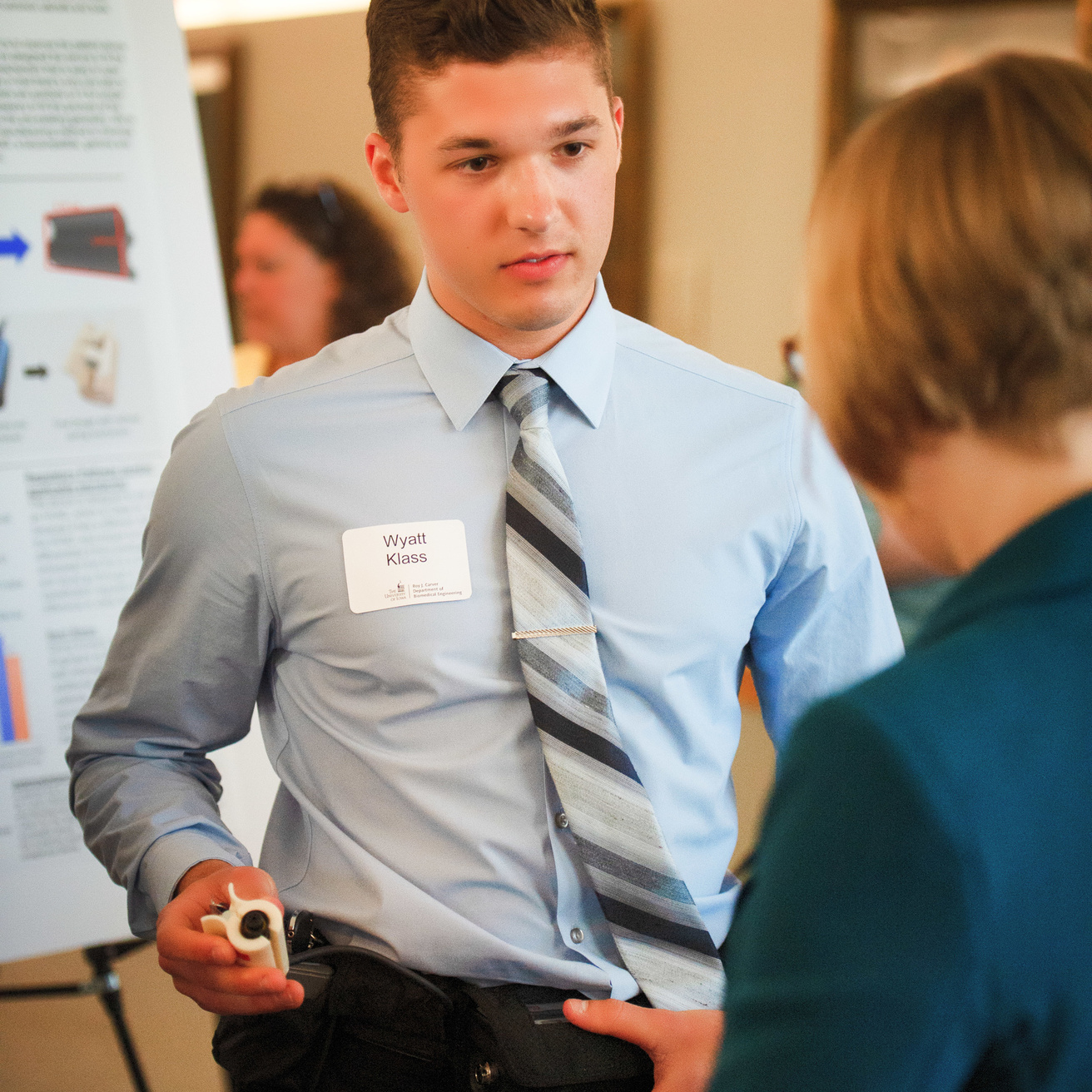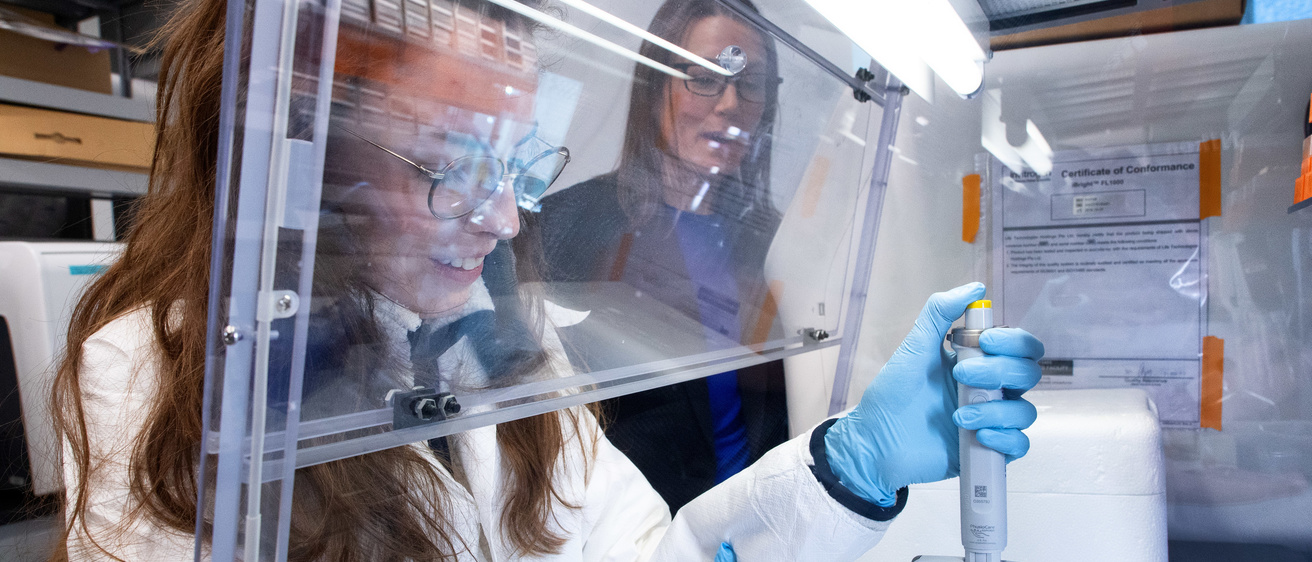Main navigation
MS program overview
Students who have earned a baccalaureate degree in engineering or in a related field such as mathematical, physical, or life sciences are eligible to be considered for admission to the Master of Science Degree study in Biomedical Engineering provided they have a minimum grade point average of 3.00 out of 4.00. Students may, under exceptional circumstances, be considered for conditional admission with a lower grade point average. Students may choose to pursue one of two types of MS degrees – MS (thesis) and MS (non-thesis).
MS Thesis degree
An MS Thesis degree requires 24 semester hours of core and elective graduate-level courses and 6 semester hours of MS thesis. The core courses required of all graduate students are provided in the Graduate Curriculum and Policies page. The elective courses are expected to conform to the focus area of the candidate. The MS thesis will be evaluated by an examining committee of faculty members. Students are encouraged to publish their thesis work in peer-reviewed journals and present them in the BME graduate seminar, where possible. Usually, students obtain their MS thesis degree in four semesters.

Research advisor/mentor:
The research mentor is a faculty member who will guide the candidate in their MS thesis research, in choosing appropriate elective courses, managing the administration of the thesis defense, often providing financial support and in guiding the candidate toward a chosen career path upon graduation. Identifying a research mentor is one of the most important and indispensable steps for an MS thesis candidate. Therefore, the earlier a research mentor is identified, the better. Many MS thesis candidates identify and have communicated with their research mentor even before starting their graduate studies. All students seeking an MS thesis are encouraged to identify their research mentor within the first semester of graduate studies.

Academic advisor:
The academic advisor is a BME primary faculty member who will guide the candidate on general academic requirements of their graduate studies including the approval of courses for registration. If the research mentor is a BME primary faculty, then he/she will also serve as academic advisor. However, if the research mentor is not a BME primary faculty member, an academic advisor from BME will be assigned to the candidate (or may be chosen by the candidate).

Examining Committee:
The examining committee will evaluate and pass/fail the candidate's MS thesis effort. The candidate must form an examining committee with input from his/her research mentor. It must consist of at least three members and conform to the following requirements:
- At least two committee members should be members of the University of Iowa tenure-track faculty;
- At least two committee members should be BME primary faculty members; and
- The examining committee chair or at least one co-chair must be tenure-track.

MS thesis report and oral defense:
The MS thesis effort must be presented to the examining committee through a report and an oral defense. Thesis report must conform to the instructions provided in the graduate college thesis manual. All committee members have the right to examine corrected drafts as well as earlier drafts to assure that recommended changes have been made before the thesis is submitted to the Graduate College. An oral defense in front of the examining committee must be scheduled by the candidate. In typical cases, the candidate will present his/her thesis project effort and findings followed by a Q&A session. The examining committee will then convene in private, discuss and vote to pass or fail the candidate. The student will be considered to have passed the MS thesis defense if a majority of the members vote to pass. If the student fails the thesis defense, he/she may retake it at the discretion of the examining committee.
The thesis report must conform to the instructions in the graduate college thesis manual. The report must be submitted to the examining committee members at least 2 weeks before the date of the thesis defense.

Required documentation:
Three weeks before the thesis defense date or by the Graduate College deadline, the candidate should submit the BME exam request to the Graduate Program Coordinator. The 'Nondoctoral plan of study' and the 'Request for final examination form' will be completed and submitted to the Graduate College on behalf of the student. The 'Report of Final Examination Form' will be obtained from the main BME office by the committee chair, and be available during the thesis oral defense. After the oral defense, the examining committee chair should have the report of final examination form signed by all the members and return it to the department office. Relevant forms may be downloaded from the BME graduate program Forms and Documents page.
MS non-thesis degree
An MS non-thesis degree requires a minimum of 30 semester hours of core and elective graduate-level courses. 18 semester hours must be 5000-level or above from the College of Engineering or courses from the approved elective list 1,2. The core courses required of all graduate students are provided in the Graduate Curriculum and Policies page. The elective courses are expected to conform to the focus area of the candidate. Usually, MS non-thesis candidates obtain their degree in three to four semesters of graduate studies.
Academic advisor/mentor:
The academic advisor is a BME primary faculty member who will guide the candidate in academic aspects of their graduate studies including the approval of courses for registration. A BME primary faculty will be assigned as the academic advisor to the candidate at the beginning of their graduate studies, but may be changed upon request by the candidate.

